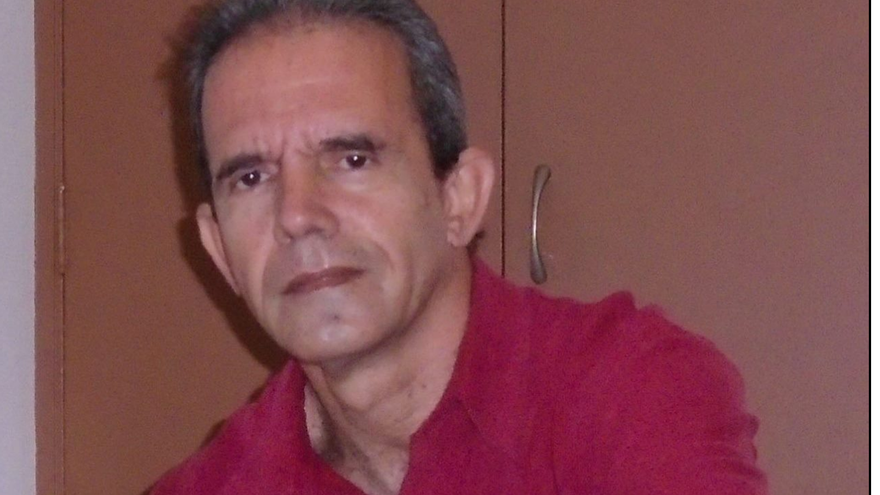
![]() 14ymedio, Havana, April 24, 2023–Cuban writer and journalist Jorge Fernández Era abandoned his collaboration with La Joven Cuba, a digital magazine where he had been publishing since February 2021, after its director, Harold Cárdenas Lema, rejected his Sunday column because he did not adjust to the media outlet’s editorial line.
14ymedio, Havana, April 24, 2023–Cuban writer and journalist Jorge Fernández Era abandoned his collaboration with La Joven Cuba, a digital magazine where he had been publishing since February 2021, after its director, Harold Cárdenas Lema, rejected his Sunday column because he did not adjust to the media outlet’s editorial line.
The article quipped that Puentes de Amor [Bridges of love], an American pro-Castroite organization, and Cuban State Security, which those responsible for the publication considered the use of “discrediting projects and institutions for which we prefer to conduct political analyses, rather than approach them as satire.”
Fernández Era refused to modify one paragraph in the column, as Cárdenas Lema proposed, and claimed satire is a legitimate method before anouncing his departure from the media outlet. “The solution, according to Harold, is to rewrite the article, with the goal of eliminating references to Villa Marista [a prison] and Puentes de Amor. I expressed that I do not accept changing a single comma in Contrato.
“Since the decision to not publish the entire text stands, I resigned as of yesterday as a collaborator at La Joven Cuba,” he announced yesterday in a Facebook post.
The writer appreciates, despite everything, the support he received from Cárdenas Lema and his patience since he began collaborating with the media outlet. “To date, I must say, I defend my writings tooth and nail, even though my thinking, humor and bite have never conceded to the all-encompassing powers at whom they are aimed,” he adds.
Fernández Era accompanied his announcement with the original column that he was unable to publish in the magazine and shared the reasons for his allusions. The writer points out that he considers Puentes de Amor a “laudable and necessary” organization which recently commited a “despicable” act.
What the journalist reproaches are the photographs of Carlos Lazo and other members of Puentes de Amor, for official press progapanda, with Ernudis Echeverría — a young emigré whom the organization helped return to Cuba after he suffered an accident that left him severely injured. “A human gesture had he not taken advantage of the opportunity for self-promotion and to take the most horrendous photos I’ve ever seen, one of them a selfie inside the plane as if he were in front of the Bridge of Sighs.”
The other institution is State Security of which he says, “it is not necessary to discredit, it does it itself.” The journalist was arrested on April 6th and interrogated for several hours at the police station in Aguilera after publishing a column in which he ridiculed the nomination of octagenarian candidates to Cuba’s parliament, in addition to an interview he gave to producer Ian Padrón.
The agents intercepted Fernández Era while he was walking with his wife and a friend and, after reviewing his documentation, took him to the police station where they accused him of “refusing assistance and disobedience” and they demanded he pay the 3,000 peso fine for not attending previous citations to appear, but the writer refused due to irregularities in the charging document, which were also “in violation of the Criminal Procedures Law, and also the National Symbols and Military Secrets laws.”
These events are considered by the director of La Joven Cuba as “a disagreement of a personal nature” and are a departure from, in Fernández Era’s opinion, the declaration the media outlet made when, after his arrest, they urged “Cuban authorities to respect freedom of expression and political guarantees of all citizens,” and demanded his immediate release. The journalist states that with the column he intended to provide his version in a humorous way, since Cárdenas Lema had offered him the space to explain himself. However, he refused to publish the article as it was.
“Following my arbitrary detention on Thursday April 6, a chain of events has occurred that confirm a consistent line of action by the repressive organs. La Joven Cuba, with its silence, is also covering up. Believe me, I have not told — I will do so in due time — all the baseness with which the “heroic” organs of Minint [the Ministry of the Interior] have come down on me,” warned the author.
The writer’s exit follows that of members of La Joven Cuba’s editorial board: web editor José Manuel González Rubines and coordinator Alina Bárbara López Hernández. The latter was “cowardly harassed by three agents,” according to claims made by Fernández Era, of State Security when she clamored for his release in a park in Matanzas.
It was not the first time López Hernández had problems with State Security, which had already summoned her in October for an interrogation to which the professor legally refused to attend. The Prosecutor accepted her claim and annuled the summons at the time. The first time Fernández Era was called to an interrogation was in January of this year for the content of his publications; authorities did not hesitate to warn him not to attempt to file a complaint like his colleague because “Matanzas is not Havana.”
Translated by: Silvia Suárez
____________
COLLABORATE WITH OUR WORK: The 14ymedio team is committed to practicing serious journalism that reflects Cuba’s reality in all its depth. Thank you for joining us on this long journey. We invite you to continue supporting us by becoming a member of 14ymedio now. Together we can continue transforming journalism in Cuba.
